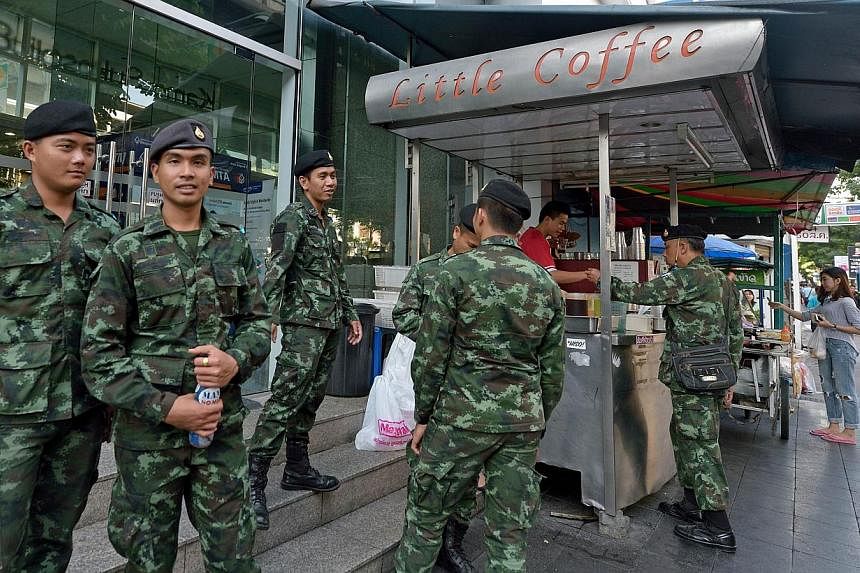Thailand has repealed martial law some 10 months after it was imposed amid a protracted political crisis.
King Bhumibol Adulyadej gave his blessings on Wednesday to the move by Prime Minister and junta chief Prayut Chan-ocha.
But the change has not loosened political controls.
In place of martial law, which bans political gatherings and allows detention for up to seven days without charge, General Prayut will use a section of the interim Constitution that grants him absolute power as junta chief.
This power - outlined in Article 44 of the charter issued last July - allows him to override the executive, judiciary and legislative branches of the government to protect national security and promote reform. An order issued on Wednesday night laid out penalties facing those conducting political protests and illegal assembly.
Gen Prayut told reporters on Tuesday that those deemed a threat to national security would still be tried in military courts, and soldiers would still be able to detain people without an arrest warrant.
"There's no need to be afraid," he said, addressing criticism of these broad powers. "If you don't do anything wrong, why should you be afraid?"
The country has been embroiled in a decade-long conflict between the country's old elite and exiled former prime minister Thaksin Shinawatra, who was ousted by a coup in 2006. Although his proxies repeatedly won elections, they were subsequently unseated by court rulings.
Martial law was imposed on May 20 last year, two days before the military staged a coup that toppled the caretaker Puea Thai party-run government.
Since then, the junta has formed a Cabinet packed with generals and clamped down on dissent and insults to the monarchy, while a handpicked panel writes a new charter expected to strengthen the power of royalist elites in Thailand.
As the threat of political violence receded, the calls to lift the law - as well as to try offenders in civilian rather than military courts - have been getting more insistent. Two weeks ago, university students ignored the ban on political gatherings to picket in front of the military court.
On the international stage, martial law has marred the image of Asean's second-largest economy as it struggles to bounce back from the prolonged political gridlock. Thailand's central bank in March cut its full-year economic growth forecast by 0.2 percentage point to 3.8 per cent.
"Martial law had made Thailand look like it was still in a crisis," said Chulalongkorn University political scientist Puangthong Pawakapan. She does not expect the repeal of martial law to have any bearing on existing cases of civilians facing a military tribunal.
According to non-governmental organisation Human Rights Watch, at least 700 people, mostly political dissidents, have been sent to trials by military courts since the coup. But the junta disputes this figure.

